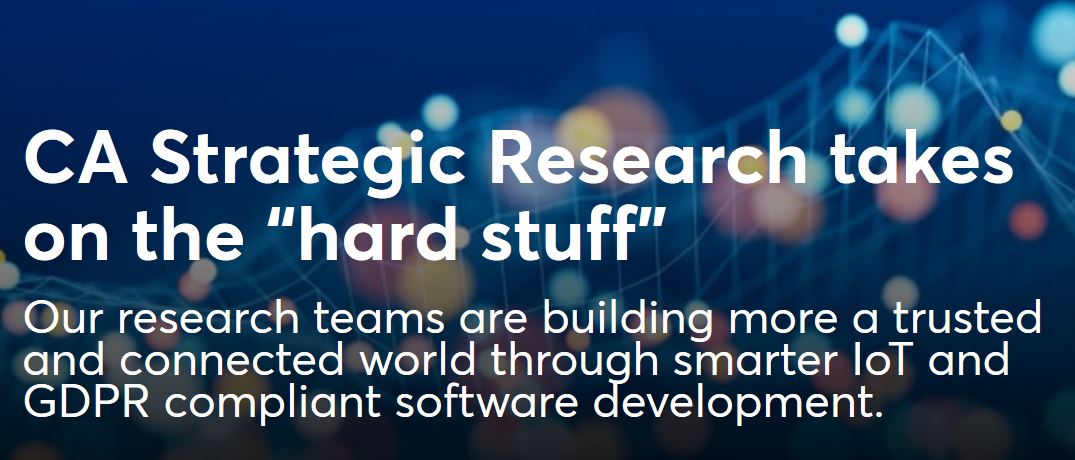Originally written by Otto Berkes, Chief Technology Officer at CA Technologies for the CA official Blog.
Original post: https://www.ca.com/en/blog-highlight/ca-strategic-research-takes-on-the-hard-stuff.html
Related booklet with more details on the project (ALOHA is presented at page 15)
Today at the Built to Change Summit in Santa Clara, California, CA announced that our Strategic Research team will collaborate on three projects funded by the European Union (EU) Horizon 2020 program. These projects will advance smart IoT systems and speed regulatory compliance through Artificial Intelligence (AI) and innovative development.
The role of our Strategic Research team is a combination of scientific research and strategic analysis. Our scientists explore new technologies, applications and platforms like IoT, robotics and AI through diverse R&D efforts together with world leading research partners. They also analyze emerging trends and technologies and their impact on CA’s customers.
At CA Strategic Research, we have a deep interest in the “hard stuff” – not the shiny objects on the surface, but the backbone of technology itself and its role in sustainable growth, ethical societies and individual ingenuity.
The initiatives we announced today are particularly exciting, because they will enable the secure and smart IoT systems that will underpin a more trusted and connected world.
ALOHA for bias-resistant AI
Our ALOHA (adaptive and secure deep learning on heterogeneous architectures) project has huge implications for “ethical AI” and creating software that is more transparent and “bias-resistant.”
A while ago it was revealed that Amazon had excluded certain neighborhoods in major US cities from its Prime Free Same-Day Delivery service. The cause? Algorithms and the underlying data on which those algorithms were based told Amazon that it couldn’t make a profit in these areas. The bias was due to the algorithm’s attempt to maximize profit.
Our ALOHA project aims to deepen understanding of how applications running on IoT devices with growing computational power can learn from experience and react autonomously to what happens in a surrounding environment. The research aims to create tools and methods that will help AI developers and business managers lower the likelihood of creating biased AI applications. The project will also explore how agile methodologies can be applied in the deep learning arena.
ENACT for smarter IoT
An IoT framework has a lot of moving parts, like sensors that gather data, actuators, data repositories – just to name a few. Each one of these parts will have security, trustworthiness, availability, and diagnostic needs. Our IoT research supports the creation and operation of robust and resilient trustworthy smart IoT systems in a world where IoT applications need to operate in scenarios not necessarily anticipated during the software development process.
Our ENACT research is focusing on novel ideas to enable the new tools required to create and monitor resilient systems. Our research will help create new mechanisms to perform agile risk analysis in application development, surface vulnerabilities, and enable predictions around unexpected incidents that can affect overall software development planning. For instance, two devices on a smart train may be sharing critical information on an unencrypted channel. Early detection of this vulnerability may avoid software development delays due to efforts to secure the system.
PDP4E for better privacy and personal data protection
The third project we announced today, Privacy and Data Protection for Engineers (PDP4E), explores the development of algorithms and tools required to build compliance into software development processes.
The General Data Protection Regulation (GDPR) (Regulation (EU) 2016/679) is a regulation by which the European Parliament, the Council of the European Union and the European Commission intend to strengthen and unify data protection for all individuals within the European Union.
Our PDP4E project will address the protection of personal data and explore how to better enable the development of code that allows companies to comply with GDPR.
To find out more about these projects and other initiatives CA Strategic Research is working on, please download our new booklet.

